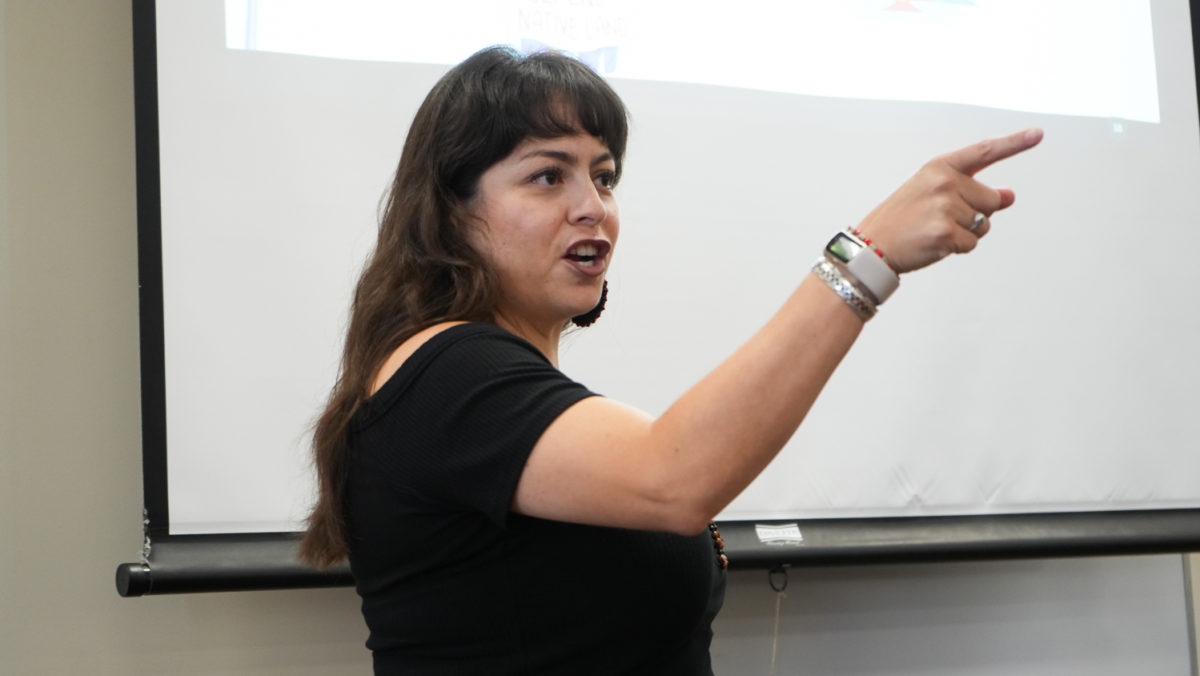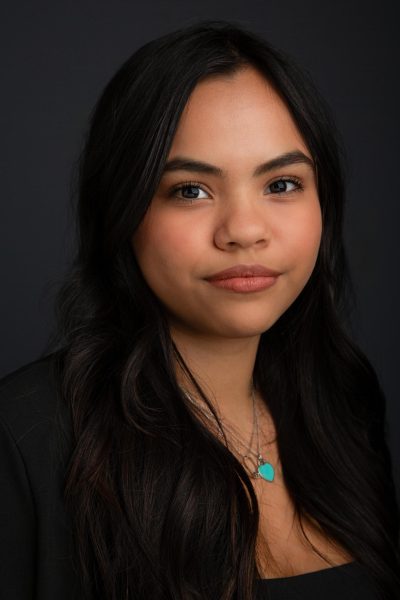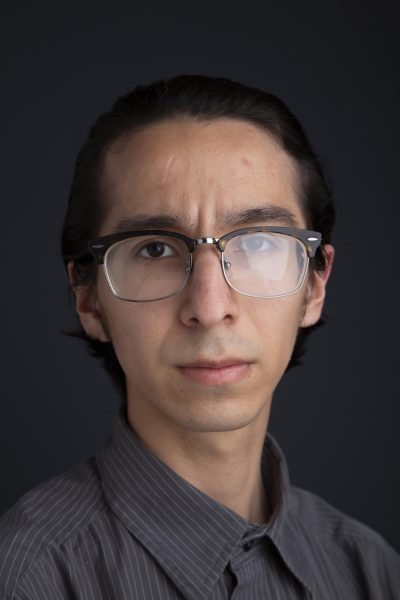Activist and educator Rio Medina talked about the struggle of self-identification and about the progress that has been made for California Community College Native and Indigenous students on Monday, Oct. 9 in Cruz Reynoso Hall.
Rio Medina is the Co-Founder and Community Liaison of the Long Beach City College Native American Indigenous Collaborative. She is a self-determined Otomi, Chichimeca, Yaqui, and Taos Pueblo Native Mexican American.
Born to Native Mexican parents, Medina grew up in South East Los Angeles within inner tribal communities. At a very young age, she realized she loved teaching and education, even though she did not have a good educational experience in high school, graduating with a 1.5 GPA.
She earned her associate’s degree from Cerritos Community College and a bachelor’s degree in English with a minor in ethnic studies at UC Berkeley. After working for the university, she returned home and obtained a master’s degree in public policy and administration.
“ ‘Indian’ people are the only people legally, federally, and ethnically defined by federal law in the United States,” said Professor Gerald ‘Gerry’ Padilla, one of the founding members of the Ethnic Studies Program of Fullerton College.
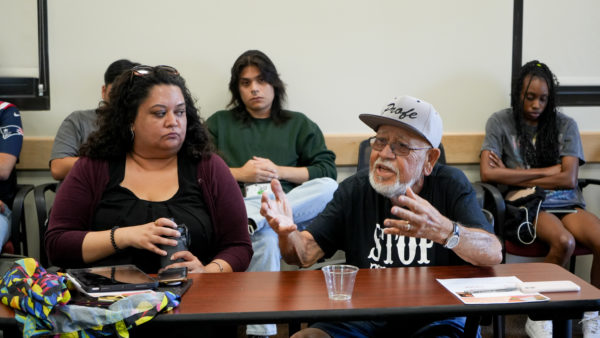
In the past, the second Monday of each October was known as Columbus Day in honor of his discovery of the New World. This holiday has become controversial in recent years due to the widespread knowledge of Columbus’ actions which led to an over 600 year genocide of Native people.
The holiday has been renamed Indigenous People’s Day in 195 jurisdictions all over America to recognize the mistreatment of Indigenous and Native people over the past 600 years. Medina continues to spread her story and knowledge to people to help obtain recognition for all Native and Indigenous People.
“We recognize and celebrate Indigenous people in the U.S. We have about 21 states now that actually have this as a holiday,” said Simone Brown Thunder, Director of Human Resources for the North Orange County Community College District and enrolled member of the Karuk Tribe. “In California, we have the second largest Native population in the U.S. We have 109 federally recognized tribes.”
Along with talking about the history of Native people in America, Medina went on to talk about her own experience in self-identification as a Native Mexican American and as well as how to self-identify. Growing up, she was questioned about her self-identity of being a Native which made her doubt herself.
“There’s always going to be that constant questioning because of the systems that we’re living in, because the history isn’t fully established, because self-determination or self-identified legally isn’t as broadly advertised,” said Medina.
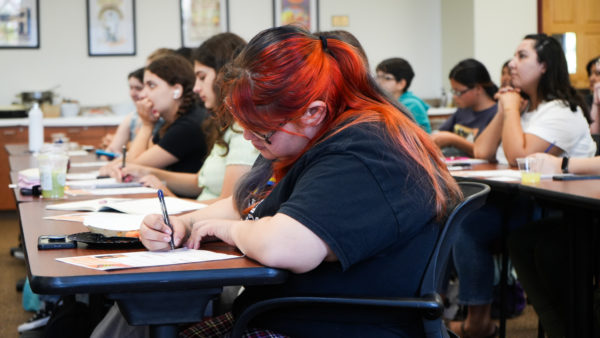
Medina also talks about her struggles attending Catholic school for nine years and growing up in the Catholic faith while practicing her Native traditions after school. “When you talk about identity crisis, trust me, I went through it at a very early age,” said Medina.
During the day, she would attend Catholic school and learn the biblical history of Catholicism and on the weekends would go to ceremonies and learn traditions and stories from the elders of her tribe. She no longer pertains to the Catholic faith, but recognizes that one can be both Native and religious.
Medina’s plans for the future are to apply to law school, get a master’s in American Indian Studies, and become an attorney. Her focus is on tribal law and land management law, mainly to help non-federally recognized nations get certain land rights and landmarks. She is also exploring the Fullerton College Native American Studies Program in hopes of obtaining a certificate.
“Native communities and Indigenous communities are not something that’s posted in a museum. It’s not something that is placed in an ancient past tense. And, in fact, we are a living, breathing community that is still here,” said Medina.

